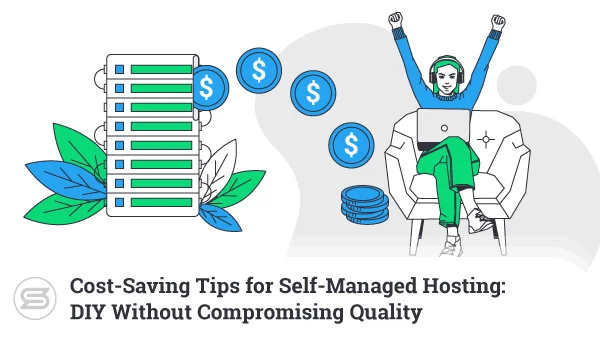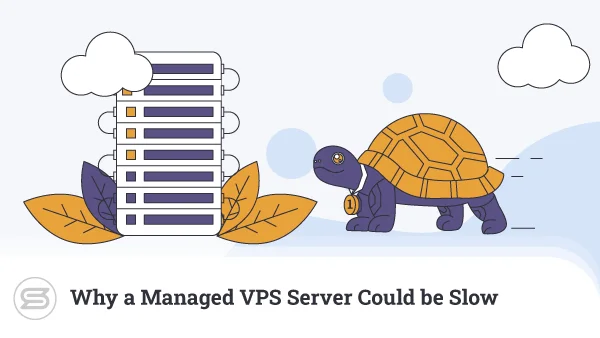You know how frustrating it is to try and visit a website only to find out it’s currently unavailable. That’s why when you’re on the other side of the fence and you’re trying to build your own online business, you’re looking for the best possible uptime.
You’re probably wondering how well your shiny new Virtual Private Server performs in this respect. Let’s find out.
What is Web Hosting Uptime?
The differences between separate web hosting solutions can be hard to explain. That’s why users and providers use a wide range of metrics in an attempt to illustrate what makes a good hosting service.
Uptime is one of them, and it represents the percentage of time your web hosting server has been up and running.
It’s very important, not least because it tells you whether you’re getting the service you’re paying for. When you sign up for a hosting account, you’re paying not only to rent your provider’s hardware but also to ensure that whatever you put on it is accessible from anywhere in the world all the time. It’s no use having a great-looking website that is unavailable when you (or, more importantly, your customers and potential partners) need it.
What is a Good Server Uptime?
Let’s not forget that setting up a reliable hosting environment for your website is a complex task. With so many factors playing a crucial role in keeping a server up and running, inevitably, at some point, one of them is going to break.
You could say that these moments are one of the things that separate good and not-so-good hosting providers. If the problem is at your host, its technical experts must be on the case immediately and should deal with it as quickly as possible.
The same specialists must work around the clock to try and take every precaution imaginable to minimize the risk of something going wrong. If they do everything right, you can expect uptime statistics of at least 99.9%. But do hosts actually manage to achieve these stats?
How to Find the Best High Uptime Web Hosting Provider?
The proof, as the saying goes, is in the pudding. You can’t really know how good a service is until you try it for yourself.
While you’re shopping around, all you can realistically do is research various hosts online and see what other people think of them. Although you can’t trust them 100%, reviews are usually a pretty good indicator of how good a particular service is.
Providers do make your life easier by offering a refund if you’re not happy with the service. Even so, be sure to do your due diligence, as repeatedly moving websites between hosts is hardly the most pleasant experience in the world.
While you’re at it, investigate different providers’ “uptime guarantee” claims. Some hosts use uptime guarantees as methods for reeling in potential customers. Occasionally, you can find vaguely worded promises in the Terms of Use, saying that you may get some credit if your website is down for a prolonged period of time.
Ideally, the legal documents will explicitly say how your provider tracks uptime. For example, when they prepare their stats, many hosts don’t count outages caused by cyberattacks or scheduled maintenance as downtime. The fine print must be very specific about this.
It also needs to be clear about what sort of compensation you’ll get if the provider fails to give you the uptime it promises. This is what their “guarantee” should be about.
With all that being said, if the time comes to be eligible for compensation from your host, you may as well start looking for a new host. Anything less than 99.9% uptime is considered a disaster nowadays, and if your provider is responsible for the poor performance, it means you’re not getting your money’s worth.
What Causes Downtime?
The potential reasons for downtime are too numerous to list. Here are some of the most common ones:
- Security problems
According to Statista, security flaws are responsible for over 60% of server-related reliability issues and downtime incidents. Cybercriminals are constantly on the lookout for vulnerabilities they can exploit, and if they find one on your server, you can be pretty sure they’ll take advantage of it.
- Human error
Having a successful website requires devoting a lot of time and effort to it. The same goes for providing and maintaining an excellent hosting environment for your website. Unfortunately, the wrong toggle switch or a forgotten semi-colon in the code can easily undo a lot of hard work.
- Buggy software updates
Using the latest versions of all software applications and tools required for running your website is cybersecurity common sense. It means all recently discovered vulnerabilities have been patched. Unfortunately, every now and again, an update might cause a conflict with another application on the server. In extreme cases, this could bring the entire website down.
- Connectivity problems
Your hosting server must be connected to the internet at all times. Data centers do a lot to ensure there’s redundancy and a constant high-speed connection. Nevertheless, the whole thing involves a lot of complicated networking equipment, and inevitably, things do fail sometimes.
- Hardware failure
The fact that you have started building an entire website means you have at least some experience with computers. You have probably gone through a few devices yourself, and you know that their hardware gets old and eventually fails. A hosting server’s hardware components are not too different from the ones powering your computer. If one of the crucial ones gives up the ghost, the entire machine will go down with it.
- High load on the server
The higher the number of people visiting your website, the more requests the server needs to process. If the load exceeds the hardware’s capabilities, the server will become unable to serve the required content, and your website will go down.
Are VPS Solutions Reliable for Good Uptime?
The isolated environment of a virtual private server makes it much more reliable when it comes to uptime. Virtualization technology enables hosting providers to build a layer between the virtual machines and the underlying infrastructure. VPSs have guaranteed resources and a dedicated IP, meaning you don’t need to worry about other websites causing problems and bringing your project down with them.
The technology practically eliminates the chances of overselling, as well. Overselling is a dirty trick some hosting companies employ in an attempt to maximize their profits. They situate too many hosting accounts on the same physical server, which results in an overloaded machine, compromised performance, and, in extreme cases, downtime.
Because virtualization creates multiple isolated virtual environments on the physical server, this is not really a problem for VPS hosting.
How to Improve your Website’s Uptime?
Even if your hosting provider does its best to ensure your server is up and running all the time, you could still end up with unwanted outages if you don’t do enough to keep your online business open at all times.
Here are some of the steps you can take to minimize downtime.
Use a website monitoring service
Quick reactions are vital in trying to minimize downtime. It’s essential to immediately take action if you see that your website is down. The thing is, you need to know about the problem’s existence before you can actually fix it. Sitting in front of your website 24/7 and hitting the Refresh button all the time is not really an option, so you need a website monitoring service.
It constantly pings your website and ensures it’s responsive all the time. If the site is down, your monitoring service will alert you immediately. That way, you can act quickly and rectify the issue before you lose any revenues or customers.
Pick the right hosting plan
If you don’t have enough hardware resources at your disposal, the server can easily come under too much load, eventually caving in and taking your site down with it.
You don’t want this to happen, so you need to watch your hosting account’s load closely. Some providers give you easy-to-use tools for monitoring hardware resource usage at all times. Even if you don’t have them, your site’s loading speeds can be a good indicator. If you see that the performance is starting to suffer under higher traffic, it may be time to think about getting a more powerful hosting solution.


Utilize site caching
If many people try to visit your website at the same time, the server would need to process a large number of requests and load all the different elements of your website for every single user.
Caching reduces the stress on the underlying hardware by processing some of the requests in advance and storing the data. That way, it can serve most of the components of your homepage directly from the cache. The number of operations the server needs to complete simultaneously is reduced, the website loads faster, and the load is lower.
Use a CDN (Content Delivery Network)
A Content Delivery Network (or CDN) is similar to caching in that it pre-loads and stores some of your site’s static data with the goal of delivering it to visitors more quickly. Unlike caching, however, a CDN distributes the static files across a worldwide network of servers. The idea is to reduce the geographical distance between the visitor and the information they’re trying to access and improve loading speeds.
The side effect of all this is that the primary hosting server doesn’t need to process and serve all the data. The load is reduced, and the probability of downtime is significantly smaller.
Conclusion
Uptime can be crucial for anything from the user experience to your site search engine rankings. Because it’s so vital for your image as a reliable business partner, it’s considered one of the most important metrics in measuring a hosting service’s quality.
A VPS server can give you excellent uptime, but to make sure this is the case, you need to pick the right plan and take all the necessary precautions to reduce the risk of outages.
FAQ
Q: What is a good server uptime?
A: It is generally understood that 99.9% uptime, without accounting for outages caused by cyberattacks or scheduled maintenance, is the least your hosting provider should give you. Make sure you keep track of your hosting service’s uptime, and if you see stats lower than that, try to figure out what may be causing them.
Q: Do VPS servers have good uptime?
A: Compared to the cheaper shared plans, VPSs give you more hardware resources and a more reliable service overall thanks to the isolated environment. The probability of overloading the virtual server is slim, and you stand a better chance of preventing outages. Even if you do start to reach the limit of your plan, the scalability VPSs offer means that you can easily upgrade to a more powerful solution.
Q: Why is server uptime important?
A: For successful online businesses, every second of downtime brings heavy losses in terms of missed sales and lost revenue. An up-and-coming project may lose the trust of potential partners if it’s not accessible for prolonged periods of time.
Even if your website is still small and not particularly popular, frequent outages may leave search engine bots with the impression that the project is inactive, which will ruin your SEO rankings. These are just some of the things that make uptime so important.
What is a VPS – Everything you need to know!



